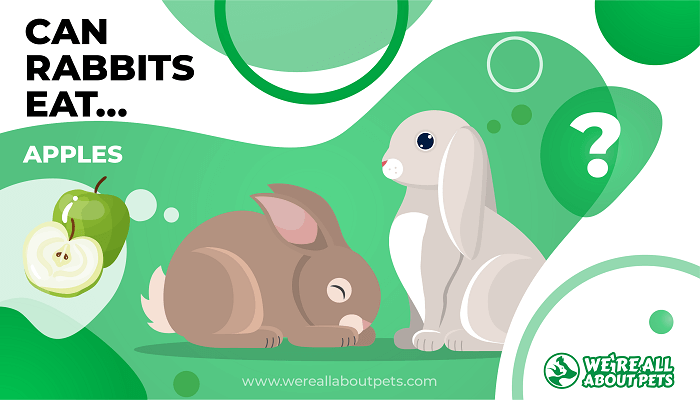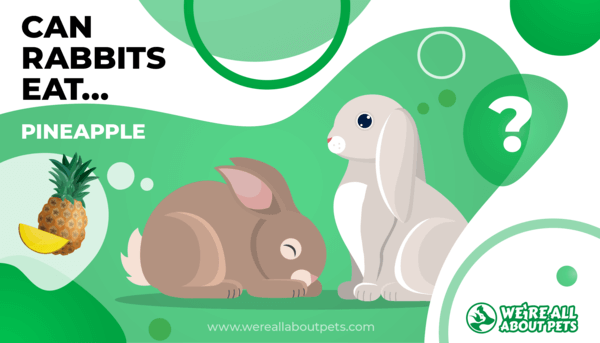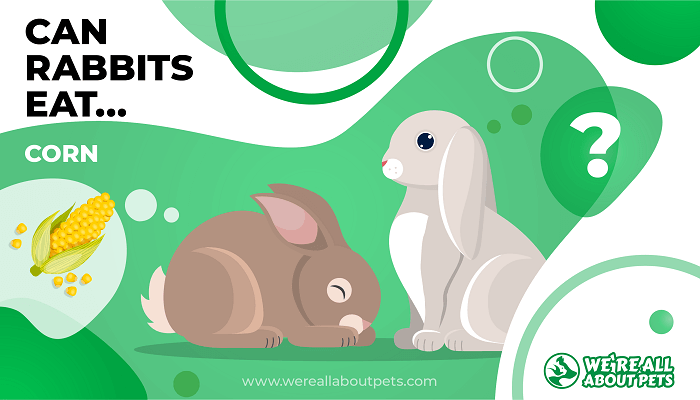Can Rabbits Eat Pumpkin?
This page contains affiliate links. We may earn money or products from the companies mentioned in this post through our independently chosen links, which earn us a commission. Learn More
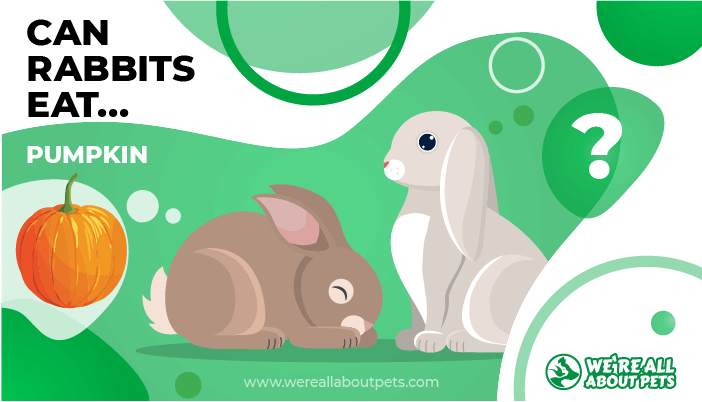
Pumpkin is a fantastic addition to baked good and it even makes its way into delicious soups. Of course, there are jack o’ lanterns, too!
If you’ve got some fresh pumpkin on hand, you’re probably wondering if you can share a bit with your bunny.
Here’s the quick answer: “Yes! Rabbits can eat pumpkin.”
But there’s more to learn. Pumpkin isn’t bad for bunnies but they should only have a little at a time, and there are certain parts of the pumpkin and the pumpkin plant itself that rabbits shouldn’t have.
Keep reading and in moments, you’ll know all there is to know about pumpkin for rabbits.
Pumpkin Nutrition Stats
Although pumpkins are mostly used in breads, muffins, pies, and other recipes, they’re a valuable source of nutrition all by themselves.
A one-cup serving of raw, cubed pumpkin give you approximately:
- 30 calories
- 5 g carbohydrates
- .6 g fiber
- 2 g protein
- .1 g fat
Pumpkin Nutritional Facts

Pumpkin is high in vitamin A, but that’s not all it has to offer. If you were to eat a cup of diced raw pumpkin, you’d also enjoy:
- 4 mg vitamin C
- 2 mg vitamin E
- .7 mg niacin
- 3 mcg vitamin K
- 6 mcg folate
- 4 mg calcium
- 9 mg magnesium
- 394 mg potassium
- .4 mg zinc
Can Rabbits Have Pumpkin?
Yes! Rabbits can have pumpkin as a special treat, so feel free to let them enjoy little pieces of pumpkin as you’re carving that jack o’ lantern or getting ready to bake that pumpkin pie.
If you’re having winter squash such as butternut, acorn, or hubbard squash, you can let your rabbit have some. Pumpkin and winter squash are in the same family, with fairly similar nutrition profiles and even some similarities in flavor.
Rabbits can have pumpkin “guts” but you’ll need to remove the seeds since they can be caught in your bunny’s throat.
Is Pumpkin Good For Rabbits?
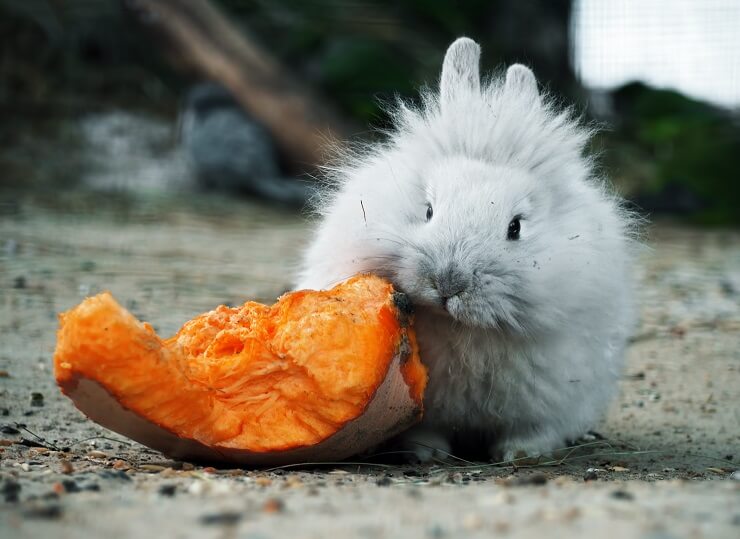
Rabbits need vitamins and minerals, just like we do – and pumpkin can be a good source.
Here’s the thing, though: Rabbits can only have a little bit of pumpkin or squash at a time, meaning that your bunny won’t get tons of health benefits from those little treats. Still, pumpkin is a healthy, natural option that outshines quite a few other items, i.e. sugary commercial treats with corn syrup and other ingredients bunnies shouldn’t have.
Do Rabbits Like Pumpkin?
While we can’t speak for every bunny, we know that most rabbits do like pumpkin and squash. The best way to determine if your bunny rabbit likes pumpkin is to offer them a little sliver and see how they respond!
How Much Pumpkin Can A Rabbit Eat?
Even though pumpkin can be a healthy treat, it’s important not to overdo it. Here’s how much pumpkin to feed your rabbit:
| Age | Amount |
| Baby rabbits | None |
| Juvenile rabbits | None |
| Adult rabbits | 1 teaspoon per 2 pounds of body weight |
As with other new foods, you’ll want to take a careful approach to feeding pumpkin to your rabbit.
Follow the exact same procedure if you’re giving your rabbit squash.
Pumpkin and squash are high in fiber, but they are also fairly high in starch and sugar. This means that too much at once can upset the balance of your rabbit’s gut flora.
The best way to introduce pumpkin to a rabbit is to offer a tiny bit – about half a teaspoon. Over the next several hours, keep an eye out for signs that your bunny isn’t feeling well, such as lethargy or pressing their stomach on the floor of their hutch.
Watch for signs of diarrhea, too.
So long as everything is normal, you can gradually increase your rabbit’s pumpkin serving size until they’re eating the full amount.
If you think pumpkin or squash is causing trouble for your bunny, eliminate it from their diet and watch for improvement. If your bunny seems sick, be sure to call your vet.
How Often Can A Rabbit Eat Pumpkin?
Your rabbit can eat a little bit of pumpkin or squash once or twice per week but not more than that. If you’re giving your rabbit other sweet or starchy treats such as fruit, don’t offer those on the days when your bunny is snacking on gourds!
The Correct Diet Is Important
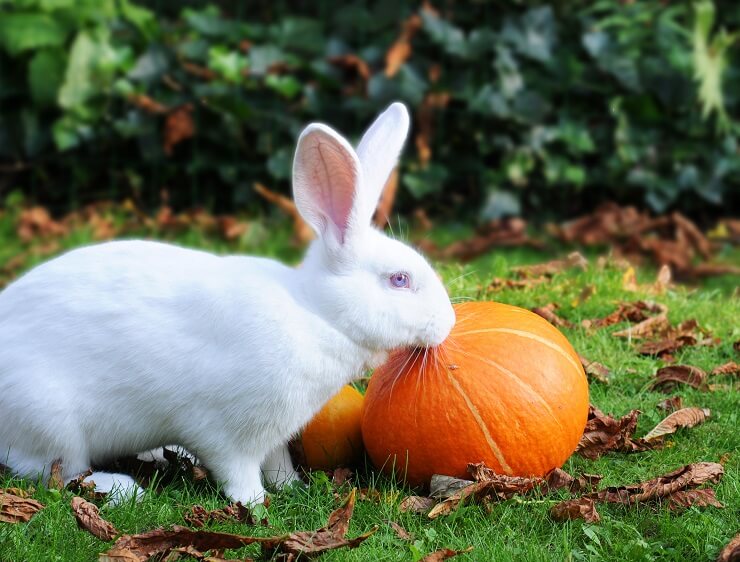
A rabbit’s natural diet is simple. In the wild, rabbits eat mostly grasses and low-lying plants. Given the opportunity, they’ll happily nibble flowers and garden vegetables, too.
Your pet rabbit’s diet should be made up mostly of hay, which takes the place of the grasses rabbits eat in the wild. There are a few different types of hay that are suitable for rabbits including Timothy, orchard and oat. Your bunny should always have access to an unlimited amount of hay.
Here’s what else to feed your rabbit every day:
- A serving of rabbit food: Check the label to find out how much to offer your bunny
- About one cup of leafy greens plus a tablespoon of crunchy veggies per two pounds of bunny body weight per day
- 1 teaspoon of fruit per 2 pounds of body weight (This is a general guideline; it’s important to research each fruit to make sure it’s safe and find the correct serving size!)
Your bunny also needs constant access to clean, fresh water, so remember to rinse and refill their drinking bottle every day.
Last but not least, your rabbit needs things to chew on. Because rabbits’ teeth never stop growing, bunnies must constantly gnaw and nibble.
Untreated soft wood sticks such as applewood, slices of dried, unbleached loofah, and bits of natural coconut shell are some good options. Your bunny might appreciate rabbit toys, too!
What Are Other Healthy Alternatives To Pumpkin In A Rabbit’s Diet?
Since rabbits can have squash and pumpkin in moderation – and since variety is important – you’ll want to offer some other treats! Here are some bunny-approved favorites to consider:
- parsley
- cilantro
- carrot tops
- swiss chard
- beet greens
- radish tops
- spinach
- arugula
- romaine lettuce
- butter lettuce
- cabbage
- broccoli
- green beans
- celery
- cucumber
- zucchini
- summer sqash
- dandelion greens
- endive
- escarole
- fennel
- bok choy
- yu choy
- kale
- carrots
- bell peppers
These are just a few favorites – there are lots of other fruits and vegetables that are safe for rabbits, and good for them, too!
For now though, you might want to try giving your rabbit pumpkin or squash just to see how well they like it!
Frequently Asked Questions
Is pumpkin safe for rabbits?
Yes, it’s safe to give pumpkin to a rabbit, so long as you offer just the right amount.
Can pumpkin make my rabbit sick?
Yes, but only if you feed them too much at once. Since squash and pumpkin have more starch and sugar than rabbits need and as a rabbit’s digestive system isn’t designed to process large amounts of starch, overdoing it can lead to serious digestive discomfort.
Can rabbits eat pumpkin leaves?
Pumpkin leaves are very high in calcium, so only give your rabbit a small amount, i.e. one leaf. Pumpkin leaves can be an interesting, occasional treat for rabbits but aren’t something that ought to be eaten on a regular basis.
Can rabbits have pumpkin flowers?
Yes! If you’re growing a garden and you’ve got too many pumpkin flowers on your plants, you can give one to your bunny. You should only offer one at a time, but you can feel free to give your rabbit pumpkin flowers a few times per week during the growing season.
Can rabbits eat pumpkin pie filling?
No. Pumpkin pie filling typically contains eggs, sugar, oil, and dairy products - all things that your bunny shouldn't have. Stick to plain pumpkin to keep your rabbit healthy.






